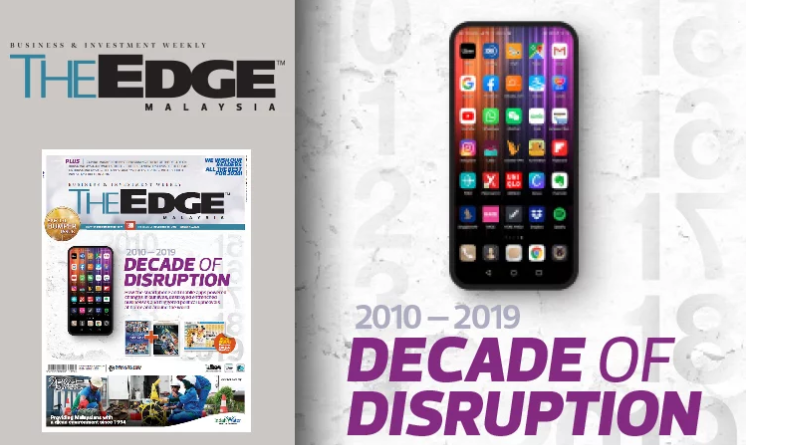2010-2019: The decade of disruption
KUALA LUMPUR (Dec 28): A key takeaway from the 2010s was that the status quo was no longer good enough. Incumbents had the rug pulled out from under their feet and it was no longer business as usual. Many in leading positions, be it in business or politics, found themselves displaced and scrambling to find a firm footing amid the shifting sands.
A closer look at the last decade will reveal that many of the revolutionary changes were enabled by the smartphone — a device that has become indispensable in our daily lives. Thanks to the popularity of social media, coupled with better and faster connectivity, it became an essential tool to mobilise for political change, spreading information and news that the mainstream media refused to carry. It disrupted the conventional and made our lives easier and more convenient, but also spread untruths.
In other instances, structural changes upset industry norms.
The US shale revolution propelled the country to the top of the list of oil-producing countries. It still looks unstoppable as the US is set to become a net energy exporter in 2020.
Then, there was consumer awareness demanding change, as in the case of the call for fashion with a conscience. It was the same for farmers of various produce. Closer to home, various sustainable measures were imposed on our palm oil producers. Even oil companies were not spared as climate change concerns compelled many of them to innovate for a future of low-carbon emissions.
In some cases, the changes were brought about by geopolitics and policy measures. For the savvy ones, there was no option but to adapt or become irrelevant. For many, the fallout from the changes was brutal — from the collapse of governments and regimes to business closures and job losses.
That is why it is appropriate to call the 2010s the Decade of Disruption.
Source: TheEdgeMarkets



